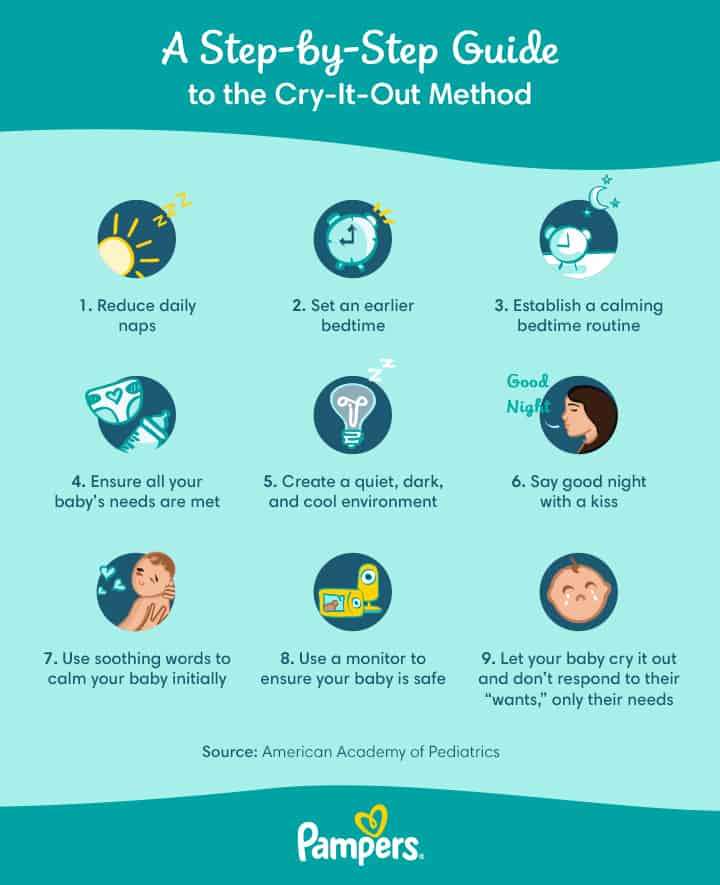Gentle Sleep Training Guide for Your 2-Month-Old Bundle of Joy
Hello, wonderful parents! Are you navigating the starry sky of parenthood and finding yourself a little short on sleep? Worry not! You’re about to embark on a gentle journey to help your 2-month-old find their way into dreamland with greater ease. Now, sit back, take a deep breath, and let’s talk about the twinkly road to better sleep for both you and your precious little one.
Understanding Your 2-Month-Old’s Sleep Needs
Two months is a twinkling time in your baby’s life with lots of growth and development. At this age, babies typically need about 14 to 17 hours of sleep over 24 hours. However, their little internal clocks, or circadian rhythms, are just beginning to develop. This means their sleep can be quite sporadic. While it’s a bit early for rigorous sleep training methods, establishing a flexible, yet consistent routine can work wonders!
Is Sleep Training at 2 Months Recommended?
Experts usually suggest waiting until a baby is around 4 to 6 months old to start formal sleep training, when their natural sleep patterns are more established. However, introducing gentle strategies when they’re younger can lay the groundwork for smoother sleep training down the road.
Setting the Stage for Successful Sleep Training
Creating a calming environment and a consistent bedtime routine could be your golden tickets to a better night’s sleep. Here are some tips to consider:
- Create a Sleep-Inducing Environment: Make sure your baby’s room is cool, quiet, and dark. Consider using a white noise machine to drown out household noises and a sleep sack to keep your little munchkin cozy.
- Observe Your Baby’s Sleep Cues: Yawns, rubbing eyes, and fussiness may signal your baby is ready for some shut-eye. Act on these cues to prevent an overtired baby, which makes sleeping peacefully more challenging.
- Stick to a Simple Bedtime Routine: Even at 2 months old, a consistent pre-sleep routine can signal to your baby that it’s time for bed. A warm bath, soft singing, or gentle rocking can do the trick.
- Day/Night Confusion: Expose your little bub to natural light during the day and keep nights dimly lit to help them distinguish day from night.
Gentle Sleep Training Techniques to Try
Even though your 2-month-old is still too tiny for strict training, gentle techniques can encourage better sleep. Consider the following baby steps:
- Swaddling: Swaddling can provide a sense of security and soothe the startle reflexes that can wake your baby.
- Feeding Schedule: Feeding your baby regularly throughout the day can help them get needed nourishment without needing as many nighttime feedings.
- Learning Self-Soothing: If your baby wakes up and isn’t crying, wait a few minutes to see if they’ll fall back asleep on their own, helping them learn the art of self-soothing.
Remember, it’s essential to touch base with your pediatrician before starting any new sleep strategies to ensure they’re suitable for your baby’s age and development.
The Importance of Patience and Persistence
Like learning to ride a bike, sleep training takes patience, practice, and persistence. Your baby is unique, and what works for one might not work for another. The key is finding what cues and routines work for your family and sticking with them while being flexible enough to adjust as needed.
Common Questions About Sleep Training at 2 Months
Are you wondering if you’re on the right track? Let’s clarify a few common questions and sprinkle some reassurance your way:
- Do all 2-month-old babies need sleep training? Not necessarily. If your baby is sleeping well and waking up only for feedings, they might not need sleep training just yet.
- Can I let my 2-month-old cry it out? The “cry it out” method is generally not recommended for babies this young, as they need to feel secure that their needs will be met.
- Should I wake my baby to feed during the night? At this age, many babies still need at least one or two night feedings. If your baby is gaining weight and growing as expected, consult with your pediatrician for personalized advice.
Remember, the journey of sleep training is as unique as each star in the sky, and your little one’s sleep patterns will evolve as they grow. Embrace the moments—both the peaceful night snoozes and the starlit feedings—for they are fleeting and precious.

5 Things Parents Should Know in Preparing for Sleep Training a 2-Month-Old
As you get ready to gently nudge your little night owl toward better sleep, here are five essential things to keep in mind:
- Consistency is Key: Babies thrive on routines. Consistency in your baby’s sleep environment and nighttime rituals can make a significant difference in how they sleep.
- Understand Sleep Patterns: Newborns have very different sleep cycles from adults. By the 2-month mark, their sleep begins to organize, but they still sleep in shorter cycles. This is perfectly normal, so adjust your expectations accordingly.
- Safety First: Always follow safe sleep guidelines. Your baby should sleep on their back, on a firm mattress, without loose bedding or soft toys around them.
- Growth Spurts and Regressions: Be prepared for growth spurts and sleep regressions which can temporarily disrupt your baby’s sleep patterns. During these periods, your baby may wake more often or find it harder to fall asleep.
- Parental Self-Care: Your well-being is just as important as your baby’s. Make sure you are getting rest where you can, asking for help when needed, and taking care of your physical and mental health.
Preparing for sleep training doesn’t need to be stressful. Approach this time with love, understanding, and a touch of strategy, and you’ll set the stage for many sweet dreams to come.
What to Expect: Sleep Development Milestones at 2 Months
Your little star is growing and changing every day, and so is their sleep. Here are some milestones you can look forward to around the 2-month mark:
- Longer Nighttime Sleep Periods: You might start seeing longer stretches of sleep at night as your baby’s stomach capacity grows and they can take in more milk at each feeding.
- Increased Daytime Alertness: Expect more awake periods during the day, which is excellent for interaction and playtime!
- Smiles and Coos: These joyful expressions don’t just warm your heart; they’re also signs of your baby’s development, which impacts their sleep!
- Reaching for Objects: As your baby becomes more curious about the world, they may resist sleep in favor of exploring. Encourage playtime during the day to help them wind down at night.
Tracking these milestones can be helpful to understanding your baby’s sleep patterns and behavior. Remember, each baby is a unique individual, so these milestones may vary, and that’s perfectly okay.
Building a Bedtime Routine: A Step-by-Step Guide
If you’re wondering how to create that magical pre-sleep routine, here’s a simple guide to lull your baby gently towards slumberland:
- Wind Down Time: Begin to reduce stimulation about an hour before bedtime. Lower the lights, reduce noise, and play gentle music or sounds.
- Bath Time: A warm bath can soothe your baby and signal that bedtime is near. Make it a short and sweet experience to avoid overstimulation.
- Massage and Pajamas: A gentle massage with baby-safe oils or lotions can be relaxing. Dress your baby in comfortable pajamas suited to the room’s temperature.
- Quiet Activities: Engage in peaceful activities such as reading a quiet book, singing lullabies, or gentle rocking.
- Feed and Burp: Offer a final nighttime feeding and make sure to burp your baby well to prevent discomfort that might wake them.
- Lay Down Awake: Whenever possible, put your baby down while they’re drowsy but still awake, which can help foster self-soothing skills.
With time and repetition, this routine will become a comforting signal to your baby that it’s time to rest their little head and visit the land of nod.
Embracing Flexibility in Your Baby’s Sleep Journey
While routine is valuable, being adaptable is also crucial. Life comes with its own set of challenges and surprises—growth spurts, teething, and illnesses can all throw a wrench into the best-laid plans. When these things happen, it’s okay to adapt your approach while maintaining as much consistency as possible. Be gentle with yourself and your baby as you navigate these changing tides together.
Ultimately, sleep training at 2 months is less about strict methods and more about laying a foundation of good sleep habits and cues for your baby. It’s a time to learn about your little one and bond over bedtime routines that will carry forward as they grow.
And there you have it, dear parents—this gentle sleep training guide was made with love and care, just like the tender moments you share with your bundle of joy at bedtime. May your nighttimes be speckled with stars of serenity and peace, and may you find joy in every little sleepy yawn and cozy cuddle. Happy snoozing!
See more great Things to Do with Kids in New Zealand here. For more information see here
Disclaimer
The articles available via our website provide general information only and we strongly urge readers to exercise caution and conduct their own thorough research and fact-checking. The information presented should not be taken as absolute truth, and, to the maximum extent permitted by law, we will not be held liable for any inaccuracies or errors in the content. It is essential for individuals to independently verify and validate the information before making any decisions or taking any actions based on the articles.




